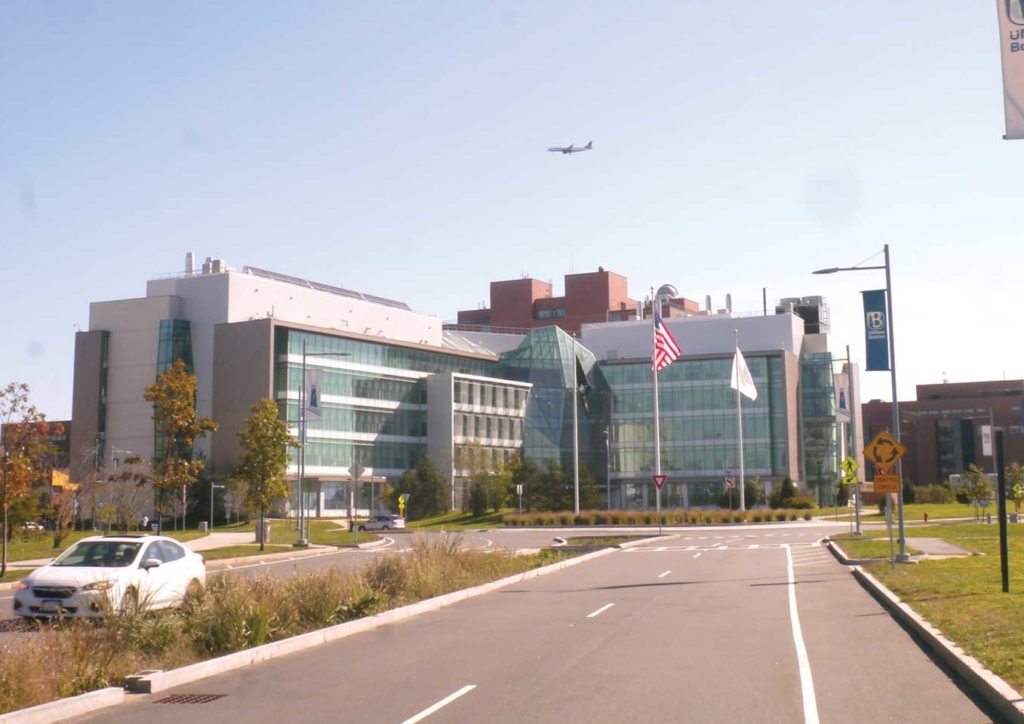Professors dispute UMass dean’s report
Administrators level accusations at Africana Studies Department

Faculty members at UMass Boston are pushing back on a report commissioned by administrators that is critical of the Africana Studies Department.
The report, commissioned in March, comes after several years during which professors with the Africana Studies Department have clashed with UMass Boston administration officials over funding and autonomy for the department, which now has just one full-time professor.
UMass Boston officials have not made the report public, but forwarded an executive summary to the Banner that alleges that the department has experienced high turnover and “internal leadership challenges.”
Tim Sieber, who retired from the university’s anthropology department earlier this year, fired off an angry letter to UMass Boston Chancellor Marcelo Suarez-Orozco, Provost Joseph Berger and Dean Tyson King-Meadows, blasting the university for what he says is a pattern of disrespect and cruelty.
“That department does not deserve — and indeed no academic department deserves — to be treated in such an autocratic manner and given little to no chance to chart its own fortunes,” Sieber wrote. “This conduct makes a total mockery of ‘shared governance,’ as well as academic credentials and freedom.”
Africana Studies Professor Jemadari Kamara said the allegations of internal leadership challenges alleged in the report, prepared by the law firm Prince Lobel, might better be leveled at the university itself.
“They’ve had four deans in the last seven years,” he said. “That’s the nature of things here.”
At the same time, Kamara says, administration officials have twice intervened in the Africana Studies Department’s efforts to hire three professors, bringing both processes to an end. The administration also denied tenure to two Africana Studies professors in 2015, which led to their departure from the university, and the following year removed former Professor Bob Johnson from his role as chair of Africana Studies after he said the tenure review process was unfair because there were no people of color involved.
Johnson later filed a discrimination complaint against UMass Boston. The university reached an out-of-court settlement with Johnson.
University officials removed Kamara from his chairmanship of the department. He remains the only tenured professor in the department, which relies on two other non-tenured professors and several part-time professors to teach its courses, which are 95% enrolled. Next year, the department will be forced to reduce its course offerings by 30% through the elimination of non-tenure track positions, Kamara said.
While the 30% reduction in non-tenure track positions is happening across the board at the university, Kamara says it will hit particularly hard in Africana Studies, given that the department is not fully staffed.
“You can’t use an across-the-board policy like that when it will have a different impact on smaller departments,” he said.
The report commissioned by the university looked at both Africana Studies and the William Monroe Trotter Institute — one of four research institutes housed at UMass Boston.
Kamara, however, points out that the work of the Trotter Institute, which has not had a director since last year, is not directly related to that of Africana Studies.
“Why did they lump them together?” he said. “Is it just all Black folk stuff? Is that what they think?”
Among the findings in the executive summary report is that the university has opportunities to “continue to enhance its support” for the Trotter Institute and Africana Studies Department.
“Overall, this exhaustive assessment found that we have challenged ourselves to become a leading anti-racist institution and that the administration is committed to a thriving Africana Studies Department and Trotter Institute being part of that vision,” Provost Joseph Berger wrote in a memo to the UMass Boston community.
Elizabeth Sweet, a professor in the Department of Urban Planning and Community Development, said racism at the university has been an impediment to Africana Studies.
“There’s been real racism in terms of professors getting tenure,” she said.
Sweet, who taught in Africana Studies, also contested the report’s assertion of internal conflict in the department.
“Each person who has left the department left for different reasons,” she said. “They’re trying to use it as an excuse to take unreasonable actions. It’s a hostile takeover.”
The Trotter Institute began a steep decline after university officials in 2017 announced they were cutting funding for the university’s public research institutes and putting them on what they termed a “glide path to self-sufficiency.” In 2019, the head of the institute, Barbara Lewis, retired. In 2021, her university-appointed replacement, Africana Studies Professor Quito Swann, also left after just one year.
In his memo to the UMass Boston community, Berger pledged $1.9 million in funding for both the Trotter Institute and Africana Studies.
“These investments in new personnel and operational support will revitalize the two units so that with new faculty leadership they can continue to dedicate themselves to, and focus on, their instrumental roles in helping the university meet its mission and vision,” Berger wrote.
Kamara said a report produced last year by UMass faculty concluded that the Trotter institute would need at least $800,000 to function, leaving little for Africana Studies, a department that until recent years functioned with seven faculty members.
Retired Professor Sieber questioned why the university contracted with a law firm to produce a costly report at a time of cost-cutting.
“It’s very strange that they would contract with an expensive law firm to come up with a report that validates their long-term stereotypes of the department,” he said.







